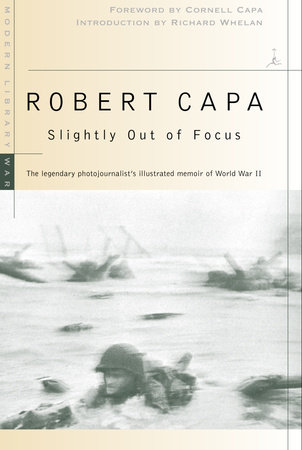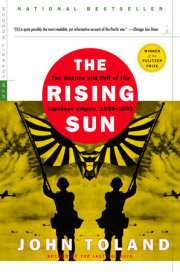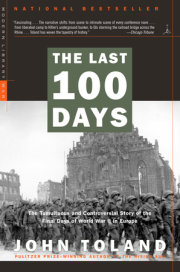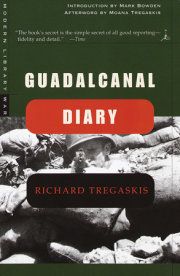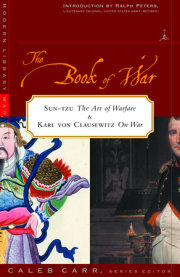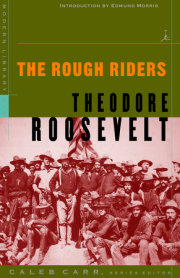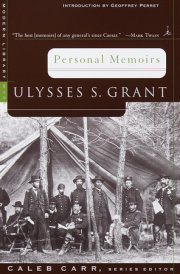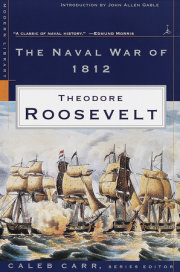Our preinvasion breakfast was served at 3:00 a.m. The mess boys of the U.S.S. Chase wore immaculate white jackets and served hot cakes, sausages, eggs, and coffee with unusual zest and politeness. But the preinvasion stomachs were preoccupied, and most of the noble effort was left on the plates.
At 4:00 a.m. we were assembled on the open deck. The invasion barges were swinging on the cranes, ready to be lowered. Waiting for the first ray of light, the two thousand men stood in perfect silence; whatever they were thinking, it was some kind of prayer.
I too stood very quietly. I was thinking a little bit of everything: of green fields, pink clouds, grazing sheep, all the good times, and very much of getting the best pictures of the day. None of us was at all impatient, and we wouldn't have minded standing in the darkness for a very long time. But the sun had no way of knowing that this day was different from all others, and rose on its usual schedule. The first-wavers stumbled into their barges, and--as if on slow-moving elevators--we descended onto the sea. The sea was rough and we were wet before our barge pushed away from the mother ship. It was already clear that General Eisenhower would not lead his people across the Channel with dry feet or dry else.
In no time, the men started to puke. But this was a polite as well as a carefully prepared invasion, and little paper bags had been provided for the purpose. Soon the puking hit a new low. I had an idea this would develop into the father and mother of all D-Days.
The coast of Normandy was still miles away when the first unmistakable popping reached our listening ears. We ducked down in the puky water in the bottom of the barge and ceased to watch the approaching coastline. The first empty barge, which had already unloaded its troops on the beach, passed us on the way back to the Chase, and the Negro boatswain gave us a happy grin and the V sign. It was now light enough to start taking pictures, and I brought my first Contax camera out of its waterproof oilskin. The flat bottom of our barge hit the earth of France. The boatswain lowered the steel-covered barge front, and there, between the grotesque designs of steel obstacles sticking out of the water, was a thin line of land covered with smoke--our Europe, the "Easy Red" beach.
My beautiful France looked sordid and uninviting, and a German machine gun, spitting bullets around the barge, fully spoiled my return. The men from my barge waded in the water. Waist-deep, with rifles ready to shoot, with the invasion obstacles and the smoking beach in the background--this was good enough for the photographer. I paused for a moment on the gangplank to take my first real picture of the invasion. The boatswain, who was in an understandable hurry to get the hell out of there, mistook my picture-taking attitude for explicable hesitation, and helped me make up my mind with a well-aimed kick in the rear. The water was cold, and the beach still more than a hundred yards away. The bullets tore holes in the water around me, and I made for the nearest steel obstacle. A soldier got there at the same time, and for a few minutes we shared its cover. He took the waterproofing off his rifle and began to shoot without much aiming at the smoke-hidden beach. The sound of his rifle gave him enough courage to move forward and he left the obstacle to me. It was a foot larger now, and I felt safe enough to take pictures of the other guys hiding just like I was.
It was still very early and very gray for good pictures, but the gray water and the gray sky made the little men, dodging under the surrealistic designs of Hitler's anti-invasion brain trust, very effective.
I finished my pictures, and the sea was cold in my trousers. Reluctantly, I tried to move away from my steel pole, but the bullets chased me back every time. Fifty yards ahead of me, one of our half-burnt amphibious tanks stuck out of the water and offered me my next cover. I sized up the situation. There was little future for the elegant raincoat heavy on my arm. I dropped it and made for the tank. Between floating bodies I reached it, paused for a few more pictures, and gathered my guts for the last jump to the beach.
Now the Germans played on all their instruments, and I could not find any hole between the shells and bullets that blocked the last twenty-five yards to the beach. I just stayed behind my tank, repeating a little sentence from my Spanish Civil War days, "Es una cosa muy seria. Es una cosa muy seria." This is a very serious business.
The tide was coming in and now the water reached the farewell letter to my family in my breast pocket. Behind the human cover of the last two guys, I reached the beach. I threw myself flat and my lips touched the earth of France. I had no desire to kiss it.
Jerry still had plenty of ammunition left, and I fervently wished I could be beneath the earth now and above later. The chances to the contrary were becoming increasingly strong. I turned my head sideways and found myself nose to nose with a lieutenant from our last night's poker game. He asked me if I knew what he saw. I told him no and that I didn't think he could see much beyond my head. "I'll tell you what I see," he whispered. "I see my ma on the front porch, waving my insurance policy."
St. Laurent-sur-Mer must have been at one time a drab, cheap resort for vacationing French schoolteachers. Now, on June 6, 1944, it was the ugliest beach in the whole world. Exhausted from the water and the fear, we lay flat on a small strip of wet sand between the sea and the barbed wire. The slant of the beach gave us some protection, so long as we lay flat, from the machine-gun and rifle bullets, but the tide pushed us against the barbed wire, where the guns were enjoying open season. I crawled on my stomach over to my friend Larry, the Irish padre of the regiment, who could swear better than any amateur. He growled at me, "You damn half-Frenchy! If you didn't like it here, why the hell did you come back?" Thus comforted by religion, I took out my second Contax camera and began to shoot without raising my head.
From the air, "Easy Red" must have looked like an open tin of sardines. Shooting from the sardine's angle, the foreground of my pictures was filled with wet boots and green faces. Above the boots and faces, my picture frames were filled with shrapnel smoke; burnt tanks and sinking barges formed my background. Larry had a dry cigarette. I reached in my hip pocket for my silver flask and offered it to Larry. He tilted his head sideways and took a swig from the corner of his mouth. Before returning the bottle, he gave it to my other chum, the Jewish medic, who very successfully imitated Larry's technique. The corner of my mouth was good enough for me too.
The next mortar shell fell between the barbed wire and the sea, and every piece of shrapnel found a man's body. The Irish priest and the Jewish doctor were the first to stand up on the "Easy Red" beach. I shot the picture. The next shell fell even closer. I didn't dare to take my eyes off the finder of my Contax and frantically shot frame after frame. Half a minute later, my camera jammed--my roll was finished. I reached in my bag for a new roll, and my wet, shaking hands ruined the roll before I could insert it in my camera.
. All rights reserved. No part of this excerpt may be reproduced or reprinted without permission in writing from the publisher.

